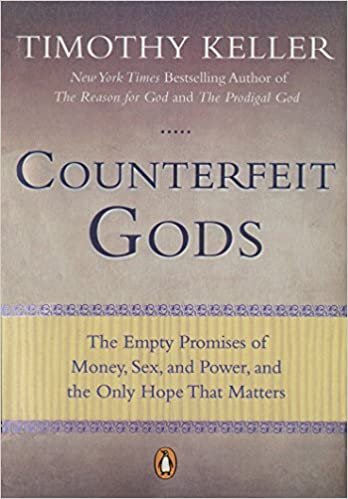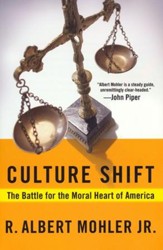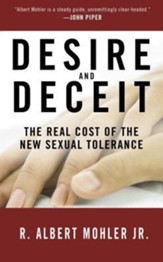Quotes about Morality
Moralism says to unbelievers, “Be what you are not.” Christianity says to believers, “Be what you are.”
I believe that human morality, rather than flagrant sin, is the greatest obstacle to the gospel today. If you ask the average law-abiding person why he expects to go to heaven, the answer will be some form of “because I’ve been good.” The rich young ruler (see Matthew 19:16-20), the prodigal son’s older brother (see Luke 15:28-30), and the Pharisee praying in the temple (see Luke 18:9-12) all had this in common: They were confident of their own goodness. Their attitude is replicated throughout our society. And the more religious a person is, the more difficult it is for that person to realize his or her need for the righteousness of Jesus Christ.
Copied from The Gospel for Real Life by Jerry Bridges, © 2002, p. 121. Used by permission of NavPress – www.navpress.com. All rights reserved. Get this book!
Human morality and submission to God’s law are entirely different in principle, though they may appear to be similar in outward appearance. Human morality arises out of culture and family training and is based on what is proper and expected in the society we live in. It has nothing to do with God except to the extent that godly people have influenced that society. Submission to God’s law arises out of a love for God and a grateful response to His grace and is based on a delight in His law as revealed in Scripture. When the societal standard of morality varies from the law of God written in Scripture, we then see the true nature of human morality. We discover that it is just as hostile to the law of God as is the attitude of the most hardened sinner.
Transforming Grace, NavPress, 1991, p. 108. Used by permission of NavPress – www.navpress.com. All rights reserved.
Where there is no “moral gravity” – that is, no force that draws us to the center – there is spiritual weightlessness. We float on feelings that will carry us where we never meant to go; we bubble with emotional experiences that we often take for spiritual ones; and we are puffed up with pride. Instead of seriousness, there is foolishness. Instead of gravity, flippancy. Sentimentality takes the place of theology. Our reference point will never serve to keep our feet on solid rock, for our reference point, until we answer God’s call, is merely ourselves. We cannot possibly tell which end is up. Paul calls them fools who “…measure themselves by themselves, to find in themselves their own standard of comparison!”
Discipline – The Glad Surrender, Revell, 1982, p. 19-20. Get this book!
Moralism – the idea that we merit God’s favor by being good – is the deadly enemy of [the] Christian… Moralism trusts in its own goodness, virtue, and principled intentions to get a “not guilty” verdict from God on the Day of Judgment. It is deceptive. A cloak of morality over an unregenerate heart can make it difficult to discern [one’s] true spiritual condition.
Gospel-Powered Parenting, 2009, P&R Publishing, p. 42, Used by Permission. Get this book!
Most of us have never really understood that Christianity is not a self-help religion meant to enable moral people to become more moral. We don’t need a self-help book; we need a Savior. We don’t need to get our collective act together; we need death and resurrection and the life-transforming truths of the gospel. And we don’t need them just once, at the beginning of our Christian life; we need them every moment of every day.
The want of a renewed heart is a hair on the moral man’s pen, that blurs and blots his copy when he writes fairest. His unrightness does others more good in this world than himself in the next.
A Puritan Golden Treasury, compiled by I.D.E. Thomas, by permission of Banner of Truth, Carlisle, PA. 2000, p. 196.
Common morality, the glue of family and society, is grounded in self-love and the desire to enjoy pleasant circumstances. It is rooted in a desire for one’s own happiness, a morality based upon hope of a good return. This is not true virtue because it is self-centered.
Common morality can be explained without developing an elaborate theory; it is simply part of the structure of our human natures, who we are as God made us. Therefore, an ethic based upon the Golden Rule alone or a God-given moral sense is not truly virtuous in itself. This is so because a moral act done apart from a transcendent object – love for God and His beauty – is a false morality. It is impossible to have a divinely sanctioned morality if God is not the object of and motive for it.
If we don’t consider the gospel context of the Bible as a whole, even well-exegeted imperatives turn into moralism. And this fosters a legalistic culture in our churches.
Expositional Preaching, ©9Marks. Website: www.9Marks.org. Email: [email protected] Free: (888) 543-1030. Used by Permission. p. 59.
If one can make no moral judgments, there can be no morality.
Checking the Fruit by Kent Hughes taken from Luke by Kent Hughes – Volume 1, copyright 1998, Crossway Books, a division of Good News Publishers, Wheaton Illinois 60187, www.crosswaybooks.org. Page 239.
Our job is not to moralize the unconverted; it’s to convert the immoral.
Jesus had little trouble reaching the harlots, the thieves, robbers, criminals, outcasts, and sinners of society, including the tax collectors and the extortionists, but He had an almost impossible time reaching the religious, self-righteous, moral people who were under the illusion and self-deception that because of their goodness, everything was OK between them and God. They recognized no sin, so they needed no Savior. That is always the danger of morality. Morality creates an illusion of safety when in fact the person who is moral may be in the greatest danger of all.
Reformation vs. Relationship, The article originally appeared (www.gty.org/Resources/Sermons/2296) at www.gty.org. © 1969-2008. Grace to You. All rights reserved. Used by permission.
Morality, in and of itself, is a damning thing. Self-righteousness is a damning thing. You’d be better off to be immoral and face the reality of your needs so that you would come to a Savior, than to live under the illusion that because you have a moral code on the outside, all is well on the inside between you and God.
Reformation vs. Relationship, The article originally appeared (www.gty.org/Resources/Sermons/2296) at www.gty.org. © 1969-2008. Grace to You. All rights reserved. Used by permission.
Immoral people didn’t blaspheme and cry for Christ’s death. Immoral people didn’t plot His execution. The harlots, thieves, and murderers didn’t do it; the religious people did it. That’s the curse of morality – moral, religious, self-righteous people, confident they are holy in themselves, are utterly deceived into believing that Satan has nothing to do with them, and they have no vigilance or protection, and they can be swarmed by demonic hosts [see Matthew 12:45].
Reformation vs. Relationship, The article originally appeared (www.gty.org/Resources/Sermons/2296) at www.gty.org. © 1969-2008. Grace to You. All rights reserved. Used by permission.
America’s greatness has been the greatness of a free people who shared certain moral commitments. Freedom without moral commitment is aimless and promptly self-destructive (John Gardner).
If all of life can be explained by evolutionary theory apart from God, and if there is no God who created us (or at least if we cannot know anything about Him with certainty), then there is no supreme Judge to hold us morally accountable. Therefore there are no moral absolutes in human life, and people’s moral ideas are only subjective preferences, good for them perhaps but not to be imposed on others. In fact, in such a case the only thing forbidden is to say that one knows that certain things are right and certain things are wrong (Wayne Grudem and Jeff Purswell).
Bible Doctrine: Essential Teachings of the Christian Faith, Zondervan, www.zonderan.com, 1999, p. 138.
To force Christian principles of moral behavior on an unbeliever only turns him into a Pharisee (John D. Street).
For the legalist, morality serves the same function that immorality does for the antinomian or the progressive – namely, as the expression of self-reliance and self-assertion.
When justice is divorced from morality, when rights of individuals are separated from right and wrong, the only definition you have left for justice is the right for every individual to do as he pleases. And the end of that road is anarchy and barbarism.
[We must not let] the foundation for our morality…shift from the objective truth God has given to us in His Word to the subjective notions we create in our minds. Even when we don’t realize the implications of our ideas, we inescapably come to one conclusion: whatever seems right to me or feels right to me is right for me… We turn from worshipping God to worshipping self.
Taken from Counter Culture, Copyright © 2015 by David Platt. Used by permission. Website: Radical.net. Page 8.
The moral absolutes rest upon God’s character. The moral commands He has given to men are an expression of His character. Men as created in His image are to live by choice on the basis of what God is. The standards of morality are determined by what conforms to His character, while those things which do not conform are immoral.
Morality is a neat cover for foul venom, but it does not alter the fact that the heart is vile, and the man himself is under damnation. Men will be damned with good works as well as without them, if they make them their confidence [rather than Jesus Christ].
The best morality in the world will not prove a man to be a Christian, but if a man has not morality, it proves that he is not a child of God.
Holiness excludes immorality, but morality does not amount to holiness; for morality may be but the cleaning of the outside of the cup and the platter, while the heart may be full of wickedness.
Many a man has died from internal bleeding, and yet there has been no wound whatever to be seen by the eye. You may go to hell as well dressed in the garnishings of morality as in the rags of immorality. Unless the very center of your soul and the core of your being be made obedient to the living God, He will not accept you, for He looks not only to your outward condition, but to your heart’s secret loyalty or treachery toward Himself.
Morality may keep you out of jail, but it takes the blood of Jesus Christ to keep you out of hell.
Moral guidelines are oppressive and legalistic only to those who still love their sin. For example, the only reason integrity should be a burden to you is if you enjoy being dishonest. Righteous deeds will be bothersome only because you prefer unrighteous ones. Speaking the truth will hurt only because it feels good to lie. Obedience to the righteous commands of God is easy for those whose hearts have been gripped by grace and whose lives are empowered by grace (Dt. 30:11; Mt. 11:29-30; 1 Jn. 5:3).
As the excellence of steel is strength, and the excellence of art is beauty, so the excellence of mankind is moral character.
God does want His people to lead upright lives that conform to His revealed moral standards… [Yet] morality and virtue are not the “chief end of man”… They are the result of God’s grace through Jesus Christ and part of the good work that God has foreordained for His people to do for the advancement of Christ’s kingdom and the glory of God.
Recommended Books





















